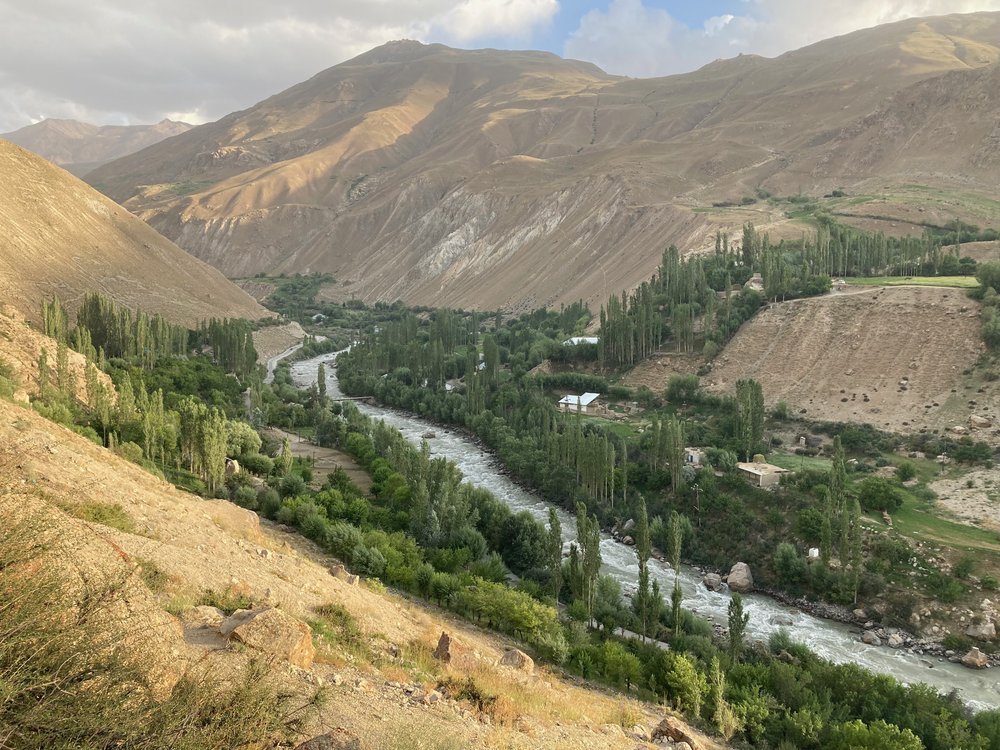IHA Sustainability and Pamir Energy drive first certification assessment using the HS Standard in Central Asia
Building on a programme launched in 2020, IHA Sustainability and Tajikistan’s first public and private partnership company, Pamir Energy, with the support of the Swiss Secretariat for Economic Affairs (SECO), are ramping up efforts to foster sustainable hydropower in Tajikistan.
Tajikistan relies heavily on hydropower for energy supply. Nearly 90% of the country’s electricity comes from hydropower and the National Development Strategy established achieving energy independence by 2030 as one of its priority policy objectives. The Ministry of Energy and Water Resources is targeting an increase in total generated capacity to 10 GW by 2030, doubling from the current 5.7 GW. With that, Tajikistan has immense hydropower potential, which, if developed effectively and sustainably, can provide green, accessible and reliable electricity to the region.
To unlock Tajikistan’s hydropower potential and electrify remote areas of the country, IHA Sustainability and Pamir Energy have devised a programme aimed at strengthening in-country resources and improving ownership of good practices in sustainable hydropower among national and regional stakeholders by equipping them with appropriate tools, skills and resources.
“We prioritise quality and excellence in serving people and bringing light to mountainous communities," said Amrikhon Rahimov, General Director of Pamir Energy. "The cooperation with IHA Sustainability and the planned assessments and follow-up capacity building trainings are part of our long term vision to ensure sustainability sustainability in the region's energy sector. We appreciate IHA Sustainability’s contribution to extending their knowledge and expertise not only to Pamir Energy, but also to our partners throughout Tajikistan like the Ministry of Energy and Barqi Tojik.”
Previously in this programme, IHA Sustainability delivered trainings on specific sections of the Hydropower Sustainability Standard, such as the Labour and Working Conditions, Community Impacts and Infrastructure Safety to approximately 40 Pamir Energy staff members. Pamir Energy’s newest project, Sebzor HPP, located on the Shokhdara River was assessed using the Hydropower Sustainability ESG Gap Analysis Tool after being awarded assessment funding through the HESG fund made possible by SECO.
“We value our long-standing partnership with Pamir Energy,” said Alain Kilajian, Senior Sustainability Specialist at IHA Sustainability. “Since the inception of our collaboration, Pamir Energy have demonstrated time and time again their commitment to elevating sustainability in Tajikistan’s hydropower development and operations. We are confident that this programme will provide the necessary tools and knowledge for Pamir Energy to ensure that Tajikistan’s hydropower sector provides net positive benefits for the region and its people.”
Moving forward, IHA Sustainability will deliver a Certified User Training to government representatives, stakeholders from the public sector, project developers, as well as civil society organisations on 28 – 30 September 2022. The training will provide an opportunity to discuss Tajikistan’s sustainability challenges and learn about international best practices to improve project performance. Experts from Sarawak Energy Berhad and the World Bank will also participate to foster exchange of knowledge and experience. Following the training, Sebzor project will be re-assessed against the Hydropower Sustainability Standard, which will be a first certification assessment in Central Asia.
The outcome of the programme is for hydropower in Tajikistan to be planned and developed more sustainably, and to provide a common language for key decision-makers and communities to discuss sustainability issues in the country.


